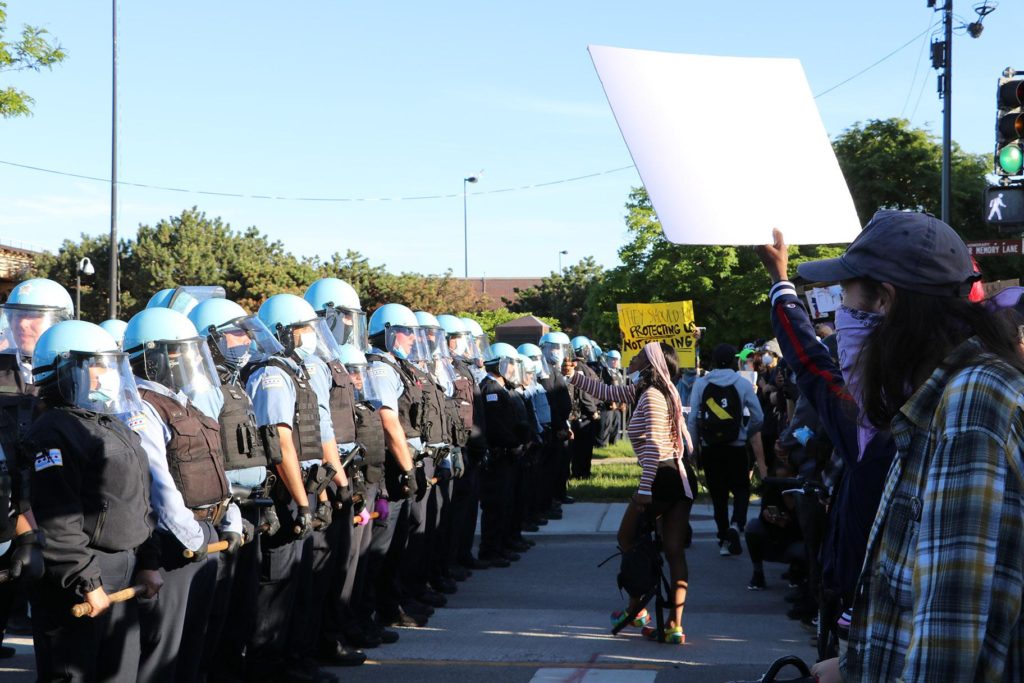The Hard Question of Police Unions

Stephen Greenhouse has an excellent New Yorker piece on the troublesome question of police unions. Plenty of police violence happens without accountability whether the cops have unions or not. But unions certainly give protection to the worst cops and probably do contribute materially to the problem of violence. And yet, there’s a lot of complexities around what to do here, as Greenhouse states.
Benjamin Sachs, the Harvard labor-law professor, argues that the union movement needs to join the push for police reform. “When unions use the power of collective bargaining for ends that we . . . deem unacceptable it becomes our responsibility—including the responsibility of the labor movement itself—to deny unions the ability to use collective bargaining for these purposes,” he wrote. “We have done this before. When unions bargained contracts that excluded Black workers from employment or that relegated Black workers to inferior jobs, the law stepped in and stripped unions of the right to use collective bargaining in these ways.” Sachs proposes amending the law to curb the range of subjects over which police unions can bargain, perhaps even prohibiting negotiations over anything involving the use of force.
Some labor leaders warn that conservatives are using today’s outrage against police unions to promote their long-term agenda of hobbling or eliminating public-sector unions. “Everyone should have the freedom to join a union, police officers included,” Lee Saunders, the president of the American Federation of State, County and Municipal Employees, wrote. “The tragic killing of George Floyd should not be used as a pretext to undermine the rights of workers.”
Randi Weingarten, the president of the American Federation of Teachers, told me that it’s important to persuade police unions to stop vehemently defending every police officer who is accused of misconduct. She pointed to her own union’s past. “Our position used to be that the member was always right, that, whatever happened, you did everything in your power to keep the member’s job,” she said. “It didn’t matter if you knew there was a problem.” She added that as public anger mounted against this hard-line approach—many said that it was shortchanging children—local A.F.T. branches moved away from rigidly defending every teacher accused of misconduct or poor performance. Weingarten told me, “Ultimately, if we are members of our community, we have to hold ourselves to a standard of treating people respectfully and decently, and misconduct has no place in that.” McCartin, the labor historian, told me, “Police unions haven’t done nearly as much as the teachers to counter the perception that they’re indifferent to the public’s concerns. They can learn a lot from the teachers.”
Last week, Patrick Yoes, the president of the Fraternal Order of Police, the nation’s largest law-enforcement group, told NPR he agrees that reforms are needed. “We welcome the opportunity to sit down and have some meaningful, fact-based discussions on ways to improve the law-enforcement community,” Yoes said. But some police-union leaders are less amenable to reform. Last week, Michael O’Meara, the president of the New York State Association of P.B.A.s, said, “Stop treating us like animals and thugs and start treating us with some respect. . . . We’ve been vilified.”
Mindful of the Black Lives Matter protests, many mayors and cities will seek to push through contract changes in the next round of police bargaining, but no one should expect police unions to roll over. Many police-union officials believe that the harder the line they take in defending officers (and ignoring the public’s concerns) the better their chances of being reëlected by their members. As a result, the unions’ critics might have a better shot at winning reforms through city councils and state legislatures. O’Meara’s remarks make clear that police unions often have an us-against-the-world view. The question now is whether police unions will get the message that they shouldn’t think only of protecting their members, that they should also think of the original purpose of labor unions: protecting all workers—in other words, protecting the public.
The biggest problem in dealing with police unions isn’t about the unions themselves. It’s that if we choose to allow certain workers to have collective bargaining rights based upon our approval of their jobs, we are just opening the door for conservatives to do the same thing to teachers and other public sector workers who give to Democrats. And while you might say that Republicans are already doing that, it’s not a door we want to keep opening. It’s also worth noting that the arguments that police aren’t workers because they oppress the working class are completely specious. Not only have workers oppressed other workers throughout American history, but the ideal that workers have a lot in common and the cops are excluded from that is a romanticized IWW-vision of the American working class that has never existed except in the fertile minds of romantics.
I’m not going to spend a second defending the police unions. There is no defending these institutions, which are horrible. The question is what to do about them. I’m far more comfortable with calls to defund or abolish the police than I am about attacking the unions per se. The biggest reason for police violence against people of color isn’t unions, even if unions may help them do so. The biggest reason is that white people want to see black people controlled, beaten, murdered. The police unions may be a symptom but getting rid of them entirely by no means solves the problem.
